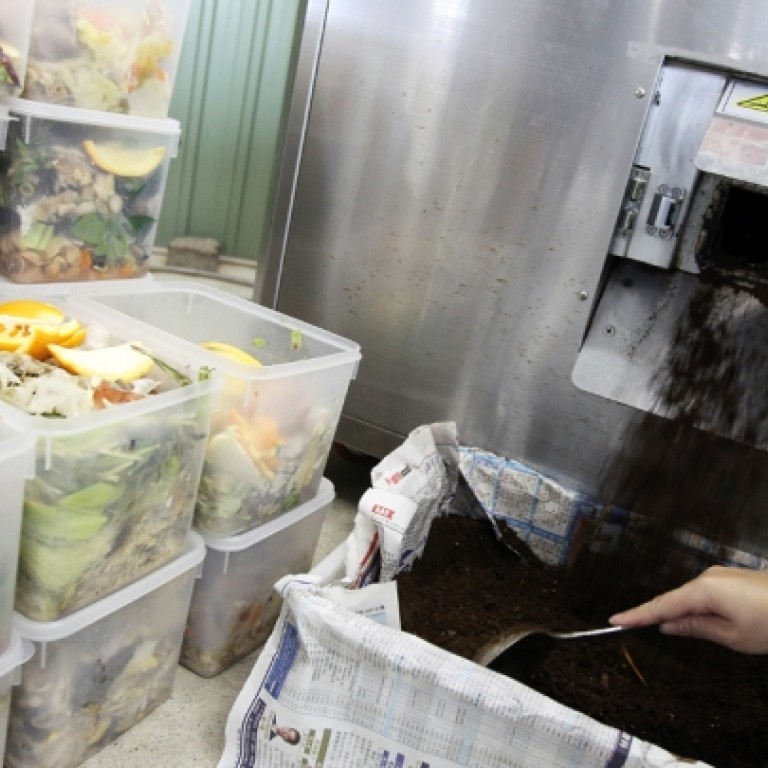
The challenge of daily waste management in Hong Kong apartments
Paul Stapleton says his composting experiment may not be practical for most in Hong Kong, but that doesn't mean they won't do their bit to recycle
For the past four years, I have been conducting my own little experiment in Hong Kong. I have not thrown away any of my food waste into the garbage containers supplied by the management of the building where I live. Instead, each day my partner and I collect fruit and vegetable peels and food leftovers and dump it all into a specially designed bucket that we keep on our small balcony. After about two weeks, we scoop the resulting compost out and take it to our small plot where it fertilises our vegetables.
If everyone could be persuaded to compost in a similar fashion, this simple daily chore would be a sure-fire way to solve Hong Kong's waste management problem that has been in the news. By my own calculation, we contribute about 1kg a day in food waste to our compost. In other words, over four years, we have taken well over a tonne of waste out of the system, and also produced some mighty fine lettuce in our garden. If each person in Hong Kong did likewise, each year, hundreds of thousands of tonnes of organic waste, by some estimates, 44 per cent of the total waste, would be removed from the system. Our waste management crisis would be solved, or at least pushed into the future.
If only it were so simple.
In fact, the composting process is a lot more troublesome than it first appears. First, there is the requirement of a balcony, without which the process would be unworkable, and here is where a few details of basic chemistry are required. As the leftovers rot, they give off a pretty intense odour. Composting indoors would make one's flat uninhabitable because rotting organic matter needs oxygen in order to fully ripen. This means it needs a daily stirring, which also means opening the lid to release the odour.
Another characteristic of rotting food waste is that a particularly vile-smelling liquid is produced. This needs to be drained off, which I do daily into bottles that I also take to my garden. Then there is also the matter of insects. Although I live on the 22nd floor, flies are attracted when I do my daily stirring, and as I found out, some of them are females. The result can be a swarming mass of maggots a few days later.
Thus, personal waste management is more challenging than it may first appear. Not everyone has a balcony and garden, let alone the knowledge, time, and most importantly, the inclination to manage their own waste. Still, our government has been slow on the uptake. Some cities in North America now collect food waste and do the composting at collection sites. Toronto, for example, which like Hong Kong has capacity problems, has succeeded in making significant reductions in waste going to landfills via its "green bin" programme. And much of that city's organic waste comes from residents in apartment blocks.
In essence, our waste management problem in Hong Kong requires government initiative and leadership. My tiny contribution is neither practical nor realistic for Hong Kong, but I believe most people would be willing to take small steps to separate their trash in the spirit of community involvement. It is not so much a question of finding the physical space for our trash; it's more a question of changing our mental space and behaviour.

